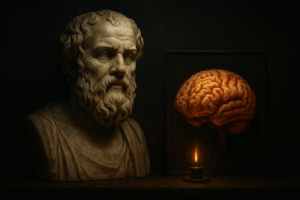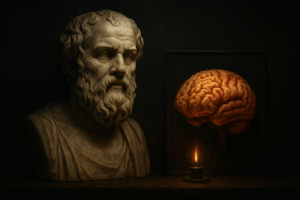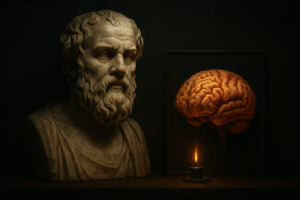
The book ADHD in Adults: Thriving as a Woman with Hyperactivity & Attention Deficit by Estelle Rose doesn’t offer groundbreaking clinical discoveries or deep technical analysis. But that’s not a flaw — as long as its purpose is understood.
This is a book aimed at adult women who are just beginning to explore ADHD in themselves — especially those diagnosed later in life or who have long suspected it without clarity. The tone is warm, the language is light, and above all, the content is structured to create emotional resonance with common symptoms, challenges, and feelings.
Some of the main themes covered:
- Emotional dysregulation as a silent but central part of ADHD
- The relationship between hormones, the menstrual cycle, and cognitive symptoms
- The real-life struggle of maintaining home, work, and relationships
- The impact of ADHD on social, romantic, and sexual life
- Practical and accessible strategies for organizing life more gently
Sensory issues: a real and often overlooked topic
The book also highlights a topic that’s frequently left out: sensory overload. In the chapter on emotions, the author points out that sounds, lights, smells, or visually chaotic environments can act as emotional triggers for people with ADHD. Recognizing and adjusting these stimuli is described as a legitimate form of self-care.
For many women, this realization is powerful. For example, hypersensitivity to sunlight — like intense discomfort, difficulty concentrating, or headaches in “normal” environments — may be part of ADHD’s altered sensory processing. The same applies to discomfort with soft noises, clothing textures, or visual clutter.
Realizing this isn’t an exaggeration or “being too sensitive,” but rather a common trait of neurodivergent brains, can be liberating.

It’s not a deep book. But it’s a very good starting point.
This is the kind of read that validates a neurodivergent woman’s inner experience and helps name what’s often misjudged as laziness, fragility, or chronic disorganization — when, in reality, there are understandable causes and a clear structure behind it.
It may not provide all the answers, but it opens doors. And sometimes, that’s exactly what someone needs to begin.
For those who want to go further
If you’ve already read this book and feel called to deepen your understanding of ADHD, here are some next steps:
Targeted therapies:
Cognitive Behavioral Therapy (CBT), ADHD coaching, and interventions focused on emotional regulation are often highly effective.
Recommended authors:
Writers such as Russell Barkley, Ari Tuckman, and Kathleen Nadeau offer deeper clinical and neuropsychological insight.
Advanced practical strategies:
Techniques like time blocking, visual organization systems, and habit tracking are helpful when you’re ready to go beyond the basics.
Exploring comorbidities:
ADHD rarely comes alone. Anxiety, hormonal imbalances, and sensory sensitivities all deserve individual attention.
A gentle invitation
If you recognized yourself in any part of this description, then this book may be a helpful place to begin. More importantly, it could mark the start of a gentler, more informed path toward understanding yourself.
This article is dedicated to adult women with ADHD — whether officially diagnosed or just wondering.
Here, you’ll find warmth, evidence-based knowledge, and practical strategies for living with more clarity and self-compassion.




